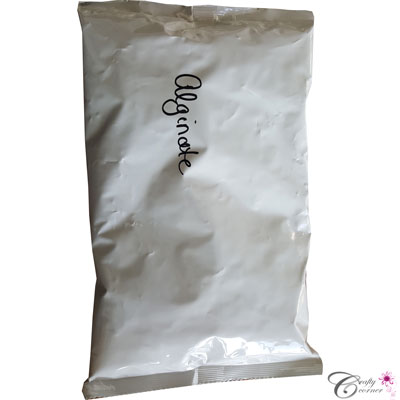Silicone Rubber Products
There are many different types of moulding rubbers been supplied by various companies from around the world, these rubbers cover a wide range of uses from industrial to medical and hobbyist. The silicone rubbers we advertise are generally for the hobbyist and light commercial levels; even though Crafty Corner has access to a wide range of rubber such as Tin Cure silicone, Platinum Cure Silicone, Polyurethane Rubber and alginate to name a few.
For more information on what we can offer do not hesitate to contact us
To choose between Tin cure silicone and Platinum cure silicone or standard silicone and food safe silicone.When it comes to choice between Platinum Cure silicone vs Tin Cure silicone you have to look at the application to which you are going to use the mould. Both silicones can be used in exactly in the same way and for the same tasks your activity will determine which silicone you will choose in the end.... Read more here
Tin cure liquid Silicone rubber
Product code: S001Brand:Crafty Corner
Multipurpose silicone is a two part silicone rubber, which cures at room temperature within 2 5 hours depending on the percentage catalyst added. It has excellent flow ability and is easy to demould. The rubber has good tensile and tear strength combined with low shrinkage. Multipurpose silicone is suitable for casting Polyester resins, polyurethane, plaster, candle wax, and soap.
Properties
Appearance: White silicone rubber base
Mixing Ratio: Between 3% and 4% by weight
Working time: Between 60 – 180 minutes depending on catalyst addition ratio
Demould time: Between 3 and 8 hours depending on catalyst addition ratio
Hardness Shore A: 18 - 22
Density: g/cm3 1.08
Tensile Strength: kg/cm2 >36
Viscosity: @ 25 Deg C 13000 – 15000 cps
Tear Strength: Kg/cm > 23
Elongation @ Break: > 440%
Shrinkage: < 0.30%
Shelf Life
Twelve months from date of shipment when stored in the original container at 25deg C.
Packaging
25 kg kegs, 5 kg buckets and 1 kg tubsThe information and recommendations on this data sheet are to the best of our knowledge, reliable. However nothing herein is to be construed as a warranty or representation. Users should make their own tests to determine the applicability of such information or the suitability of any products for their own particular purposes
With immediate notice we are no longer be supplying silicone rubber for sale.
To order or discuss your requirements please
mark@craftycorner.co.za

Alginate
Product code: S002Brand:Crafty Corner
Alginate is the extremely safe molding material most often used in LifeCasting. It is an organic polymer derived from the stems of seaweed. When alginate “sets”, these polymers cross-link to one another using calcium ions as the glue, forming a flexible solid similar to stiff silicone rubber
This liquid is applied to the skin and in a few minutes the alginate “sets” to a rubbery consistency. Alginate is Hypo-Allergenic (safe) and does NOT heat up when setting. When the alginate is removed from the skin the surface of the alginate has captured every detail of the surface of the skin right down to the fingerprint. This is the mold.
Alginate sets within 9 minutes (depending on local conditions)
Alginate Preparation
Mixed 1 part water to 1 part powder by volume (1 cup + 1 cup, for example). You can vary the water level some what to change consistency of the mixture. Less water will make Alginate thicker. More water will make the mixture thinner and easier to pour. Be careful...too much water will may result in the mixture not curing.
You would want to make the Alginate thicker when you are going face or torso casts.
Pouring Around An Object
Once mixed, Alginate can be poured around the hand, foot, fingers or other model in a fixed position inside a container. Suspend the model just above the bottom of the container and have at least 1.27 cm space between the model and the side walls of the container.
For Best Results: Apply a thin coating of Alginate to the surface
of the model by smoothing a small amount of material on by hand then pour Alginate into the container at the lowest point and let the
before using. material rise around the model. Make sure your model has a good clearance distance from the bottom and sides of the container.
Keep your model still until the Alginate sets up. You will know the alginate has set when it is firm and no longer gel-like.
For Vertical Application You may want to experiment with the amount of water added to alginate to find a thicker consistency that is right for vertical surface application. For example, some customers mix 1 part water to 1.5 parts Alginate. Work Alginate into and over the model detail with your hands and let cure.
Applying A Support Shell Once the alginate cures, a support shell will be necessary to support the alginate mould with plaster of paris bandages.
With immediate notice we will no longer be supplying Alginate powder for sale.
Approximate amount Alginate you will need| Body Part | Weight grams |
|---|---|
| Baby hand or foot | 250 |
| Adult hand or foot | 450 |
| Adult hand elbow | 700 |
| Face no ears | 450 |
| Full head and shoulders | 1200 |
To order or discuss your requirements please
mark@craftycorner.co.za



